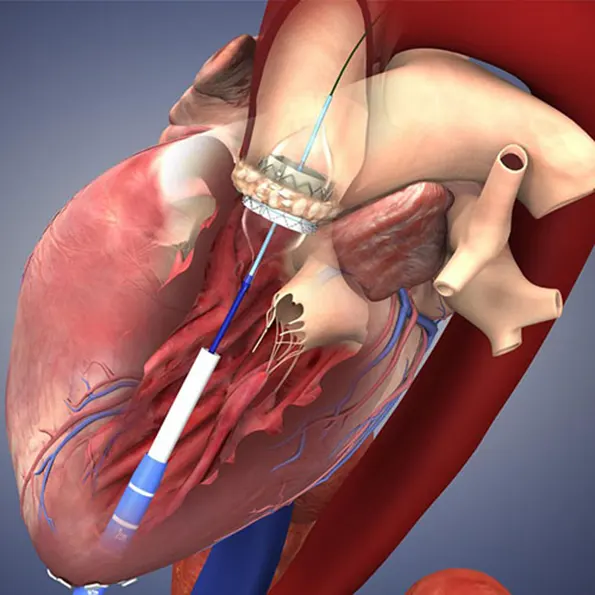1. Surgery Overview
Heart valve replacement is a surgical procedure to replace one of the heart’s damaged or diseased valves (most commonly the aortic or mitral valve) with an artificial or biological valve. This procedure is performed when a valve becomes too narrow (stenosis) or leaky (regurgitation), affecting blood flow and heart function. The replacement valve can be mechanical (made of durable materials) or biological (made from animal tissue or donated human tissue). The surgery may be performed through open-heart surgery or, in selected cases, minimally invasive techniques like TAVR (Transcatheter Aortic Valve Replacement).
2. Type of Anesthesia
Heart valve replacement is performed under general anesthesia. The patient is completely asleep and pain-free during the entire procedure.
3. Possible Risks and Complications
Bleeding
Infection, including endocarditis
Blood clots, which may lead to stroke or heart attack
Arrhythmias (irregular heartbeat)
Valve dysfunction or failure
Reaction to anesthesia
Complications from cardiopulmonary bypass (used during open-heart surgery)
Need for a pacemaker (especially after aortic valve replacement)
Long-term use of blood-thinning medication (especially with mechanical valves)
4. Hospital Stay Duration
The typical hospital stay after heart valve replacement is 5 to 10 days.
Patients may spend the first 1–2 days in the intensive care unit (ICU) for close monitoring, followed by recovery in a regular hospital room.
5. Important Post-Operative Care
Take medications as prescribed, including anticoagulants (blood thinners) if required
Attend cardiac rehabilitation to gradually regain strength and improve heart health
Monitor for signs of infection, bleeding, or unusual symptoms and report them to your doctor
Follow a heart-healthy lifestyle, including a balanced diet, regular physical activity, and quitting smoking
Maintain regular follow-up appointments to monitor valve function and heart health
Patients with mechanical valves may require lifelong blood thinning, and regular blood tests to monitor INR levels

